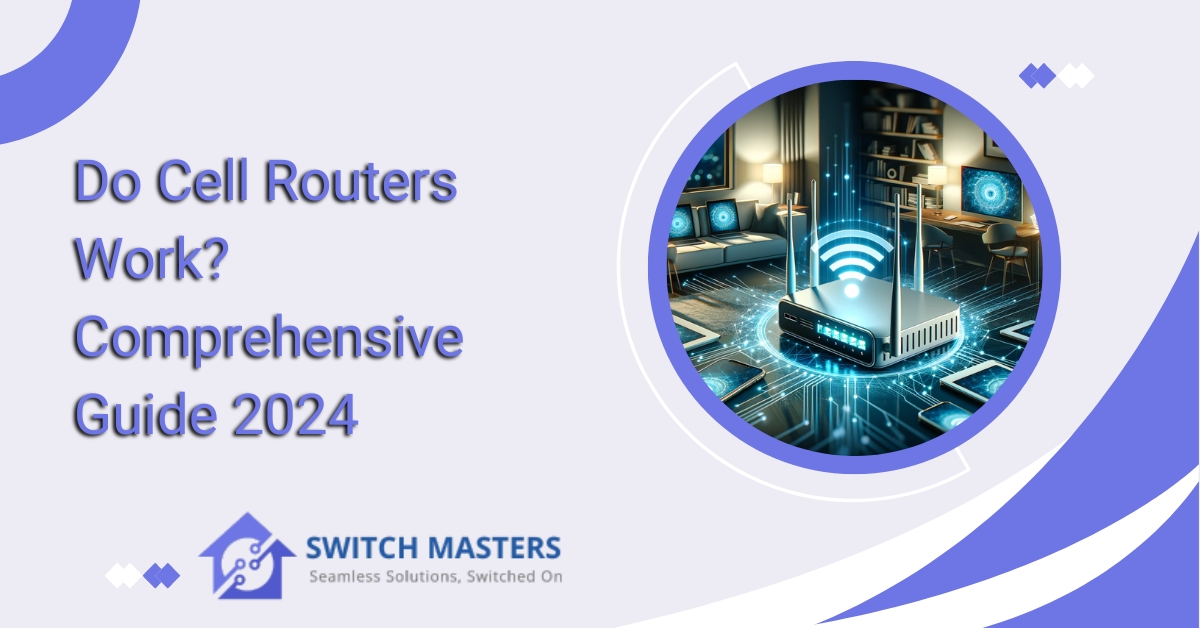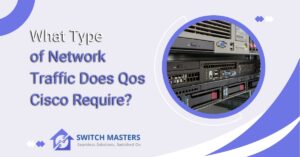Discover the effectiveness of do cell routers work in providing reliable internet connectivity. Learn how they work and why they might be the solution you need.
Introduction
In the era of constant connectivity, the question of whether cell routers truly work is of paramount importance. Cell routers have emerged as a potential solution to the challenge of accessing the internet in various settings, including remote areas and on the go. In this exploration, we will delve into the functionality and effectiveness of cell routers, shedding light on how these devices operate and whether they can reliably deliver the internet connectivity we all depend on. Join us as we uncover the answers to the question, “Do Cell Routers Work?”
Table of Contents
Do cell routers work?
Cell routers, also known as cellular routers, are devices designed to provide internet connectivity through cellular networks. They work by using a SIM card to connect to a cellular network, much like a smartphone does, but instead of just one device, they share the internet connection with multiple devices. Here’s how they generally operate:
- SIM Card Insertion: A cellular router has a slot for a SIM card. You insert a SIM card from your cellular service provider.
- Connectivity to Cellular Network: The router connects to the nearest cell tower using the SIM card’s data plan. It uses standard cellular technologies like 3G, 4G LTE, or even 5G, depending on the router’s capabilities and the network’s availability.
- Data Conversion: The cellular router converts the cellular signal into data that can be used by Wi-Fi-enabled devices. This is similar to how a home broadband router converts the signal from your phone line, fiber, or cable into internet data.
- Creating a Local Network: The device then broadcasts a Wi-Fi signal that your devices (like laptops, smartphones, tablets, or IoT devices) can connect to. Some models also have Ethernet ports to provide a wired connection to devices.
- Security Features: Cellular routers often come with built-in security features like firewalls and encrypted VPN support to ensure that the data transmitted over the cellular network is secure.
Cell routers are particularly useful in scenarios where traditional broadband connections are unavailable, unreliable, or too slow. They are widely used in mobile setups like buses, trains, or boats, in remote locations for field operations, and in temporary setups like events or construction sites.
However, the speed and reliability of a cell router’s internet connection can vary based on the cellular network’s coverage and signal strength in the area, the data plan associated with the SIM card, and the specific capabilities of the router itself.
Advantages of Using Cellular Routers
Cellular routers offer a versatile and reliable way to access the internet, particularly in situations where traditional broadband connections are impractical or unavailable. Here are some of the key advantages of using cellular routers:
- Mobility and Remote Connectivity: Cellular routers provide internet access in areas where wired connections are not available or feasible. This is invaluable for businesses and services that operate in remote locations, like mining operations, agricultural sites, or temporary event venues. They also enable connectivity on the move, which is crucial for transportation services like buses, trains, or marine vessels.
- Rapid Deployment: Setting up a cellular router is typically quick and straightforward, requiring just a SIM card and power supply. This makes them ideal for temporary locations, emergencies, or any scenario where immediate internet access is needed without the wait for fixed-line installations.
- Reliability and Redundancy: In environments where consistent connectivity is critical, cellular routers can serve as a failover solution. If the primary wired internet connection fails, the router can automatically switch to a cellular network, ensuring uninterrupted service.
- High-Speed Connectivity: With the advent of 4G LTE and 5G networks, cellular routers can provide high-speed internet access, suitable for a wide range of applications, including video streaming, large file transfers, and real-time data communication.
- Enhanced Security: Cellular routers often come equipped with robust security features like VPN support, firewalls, and encrypted communications. This is particularly important for businesses that transmit sensitive data and require secure connections.
- Scalability and Flexibility: Businesses can scale their network up or down by adding or removing cellular routers without significant infrastructure changes. This flexibility allows businesses to adjust their connectivity based on changing needs, like expanding to new locations or accommodating temporary increases in network demand.
- Cost-Effectiveness: For certain use cases, cellular routers can be more cost-effective than traditional wired connections. They eliminate the need for extensive physical infrastructure, which can be particularly beneficial in temporary, remote, or rapidly changing environments.
- Simplified Management: Modern cellular routers support cloud-based management platforms, enabling remote monitoring, configuration, and troubleshooting. This simplifies the management of widespread or mobile networks, saving time and resources.
Future Trends in Cellular Router Technology

The landscape of cellular router technology is rapidly evolving, driven by advancements in wireless communication, increased demands for mobile connectivity, and the continuous growth of the Internet of Things (IoT). Here’s a look at some future trends in cellular router technology:
1. Integration of 5G Technology:
- Higher Speeds and Lower Latency: The rollout of 5G networks will significantly enhance cellular router capabilities, offering higher data speeds and reduced latency.
- Increased Capacity: 5G will support a higher density of connected devices, crucial for IoT applications and smart cities.
2. Advanced Network Security:
- Enhanced Security Protocols: As reliance on cellular routers grows, so does the importance of security. Future routers will likely incorporate advanced encryption standards and real-time security monitoring to safeguard data.
- AI and Machine Learning: Integration of AI for predictive threat detection and automated response to security incidents.
3. Edge Computing Integration:
- Processing at the Edge: Cellular routers will increasingly handle data processing locally (at the edge), reducing the need to send data to the cloud, thereby minimizing latency and bandwidth usage.
- Application in IoT: This is particularly relevant for IoT devices that require real-time processing and decision-making.
4. Increased Energy Efficiency:
- Green Technology: With the global push towards sustainability, future cellular routers will focus on reducing power consumption and optimizing energy use, especially in large-scale deployments.
5. Enhanced Quality of Service (QoS):
- Traffic Prioritization: Future routers will offer more sophisticated QoS features, ensuring bandwidth allocation aligns with the criticality of tasks, crucial for services like VoIP and streaming.
6. Seamless Integration with Multiple Networks:
- Multi-WAN Capabilities: Routers will support seamless switching between various WAN sources (cellular, Wi-Fi, satellite) based on availability, cost, and bandwidth requirements.
- SD-WAN Integration: Enhanced integration with Software-Defined Wide Area Networks (SD-WAN) for more efficient network management and optimization.
7. Expansion of IoT and M2M Applications:
- Tailored Solutions for Industries: Expect to see cellular routers designed specifically for different sectors like healthcare, agriculture, manufacturing, and transportation.
- Improved Device Management: As the number of connected devices grows, routers will offer more robust management features for large-scale device networks.
8. User-Friendly Management Platforms:
- Cloud-Based Management: Advanced platforms for managing network settings, monitoring performance, and troubleshooting remotely.
- Customization and Automation: User interfaces that cater to both beginners and professionals, offering customization and automation options for complex network scenarios.
FAQ’s
Do SIM routers work?
4G routers equipped with a SIM card slot function much like standard wireless routers, yet they uniquely transform a 4G LTE signal into Wi-Fi utilizing 4G antennas. Comparable to inserting a SIM card into a smartphone, these routers feature a dedicated slot for a data SIM. This enables them to connect to the 4G network, providing internet access without requiring a traditional fixed-line connection.
Do mobile WiFi routers work?
In summary, the portable Wi-Fi device stands out as a highly efficient technological solution, ensuring consistent and smooth internet connectivity wherever you are. For those who are frequently on the move and require a reliable internet source beyond just mobile data, this device represents the ideal solution you’ve been searching for.
Can a cell phone act as a router?
By creating a Wi-Fi hotspot or connecting via a USB cable, you can transform your phone into an internet source that laptops, tablets, and other phones can access for online connectivity. Despite the initial perception of complexity, you can establish a connection with just a few simple taps.
What is the difference between a Wi-Fi router and a mobile router?
A cellular router functions much like a Wi-Fi router as it receives and transmits radio waves to your devices. However, the key distinction lies in the fact that a cellular router acquires its signal from network operators like MTN, Cell C, Vodacom, and Telkom. These routers are often a superior choice if you reside in a remote area or frequently travel.
Is a SIM router better than a mobile hotspot?
Which option offers faster Wi-Fi? The Peplink cellular router delivers significantly better signal quality compared to any mobile hotspot, thanks to the superior power of each device.
Conclusion
Cell routers are indeed effective devices for providing internet connectivity. They work by receiving signals from network operators, making them a reliable choice, particularly in remote areas or while on the move. The key to their functionality lies in their ability to harness cellular networks, and they often offer superior signal quality compared to mobile hotspots, making them a valuable tool for ensuring consistent and reliable internet access.















